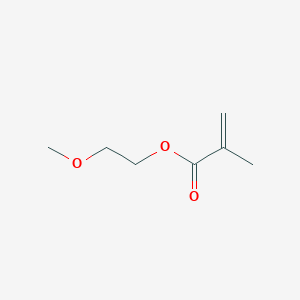-
Categories
-
Pharmaceutical Intermediates
-
Active Pharmaceutical Ingredients
-
Food Additives
- Industrial Coatings
- Agrochemicals
- Dyes and Pigments
- Surfactant
- Flavors and Fragrances
- Chemical Reagents
- Catalyst and Auxiliary
- Natural Products
- Inorganic Chemistry
-
Organic Chemistry
-
Biochemical Engineering
- Analytical Chemistry
- Cosmetic Ingredient
-
Pharmaceutical Intermediates
Promotion
ECHEMI Mall
Wholesale
Weekly Price
Exhibition
News
-
Trade Service
【Hot attention from Chemical Machinery and Equipment Network ] Non-destructive testing is abbreviated as NDT, which utilizes changes in heat, sound, light, electricity, and magnetism caused by abnormal internal structure of materials or defects on the premise of not destroying or damaging the inspected object.
With the help of modern technology and equipment, it is a technology for testing the performance, quality, internal and surface defects of test pieces.
Hot attention of Chemical Machinery Equipment NetworkChemical machinery and equipmentWith the help of modern technology and equipment, it is a technology for testing the performance, quality, internal and surface defects of test pieces.
FRP is a new type of composite material, namely fiber reinforced plastic.
Different from toughened glass, FRP is a reinforced plastic that uses a resin matrix and glass fiber or its products as a reinforcing material.
It has the advantages of light weight, high strength, corrosion resistance, thermal performance and tensile strength.
It is used in aerospace, construction, automotive and Essential production materials for energy and other industries.
my country's glass fiber reinforced plastic industry started in 1958.
After more than 60 years of continuous development, it has made significant progress in technology, type, scale and application, and formed a relatively complete industrial system.
Different from toughened glass, FRP is a reinforced plastic that uses a resin matrix and glass fiber or its products as a reinforcing material.
It has the advantages of light weight, high strength, corrosion resistance, thermal performance and tensile strength.
It is used in aerospace, construction, automotive and Essential production materials for energy and other industries.
my country's glass fiber reinforced plastic industry started in 1958.
After more than 60 years of continuous development, it has made significant progress in technology, type, scale and application, and formed a relatively complete industrial system.
As a widely used production material, quality inspection of FRP plays an important role in product research, trial production, production and development.
Quality inspection can not only help buyers choose suitable FRP products, but also help manufacturers control products.
Quality, improve the production process, and carry out reasonable evaluation and application of the product.
In actual production and use, common inspection items of FRP include geometric and weight inspection, appearance inspection, internal defect inspection and physical and chemical performance inspection.
Among them, the detection of internal structural defects has become an important means to ensure the qualification rate of FRP, discover and eliminate hidden dangers.
Quality inspection can not only help buyers choose suitable FRP products, but also help manufacturers control products.
Quality, improve the production process, and carry out reasonable evaluation and application of the product.
In actual production and use, common inspection items of FRP include geometric and weight inspection, appearance inspection, internal defect inspection and physical and chemical performance inspection.
Among them, the detection of internal structural defects has become an important means to ensure the qualification rate of FRP, discover and eliminate hidden dangers.
At this stage, the main methods used for FRP internal defect detection include ultrasonic non-destructive inspection, X-ray inspection, industrial CT and infrared thermal imaging and other technologies.
Ultrasonic nondestructive flaw detection has strong penetrating ability and high sensitivity, but it cannot make very accurate qualitative and quantitative characterization of the defects found; X-ray inspection can only obtain the plane pattern of the defect, and cannot show the three-dimensional structure of the defect; infrared thermal imaging is A method based on the physics of surface heating, but in translucent materials, part of the light will pass through the material and be absorbed by the entire thickness, resulting in uneven heating inside the material instead of the surface heating of the material.
Therefore, this technology It is subject to certain restrictions in the field of translucent material detection.
Ultrasonic nondestructive flaw detection has strong penetrating ability and high sensitivity, but it cannot make very accurate qualitative and quantitative characterization of the defects found; X-ray inspection can only obtain the plane pattern of the defect, and cannot show the three-dimensional structure of the defect; infrared thermal imaging is A method based on the physics of surface heating, but in translucent materials, part of the light will pass through the material and be absorbed by the entire thickness, resulting in uneven heating inside the material instead of the surface heating of the material.
Therefore, this technology It is subject to certain restrictions in the field of translucent material detection.
Recently, a research team from the Tomsk University of Technology in Russia has developed a new technology for the detection of internal defects in glass fiber reinforced plastics, namely artificial neural network technology.
This technology mainly includes the algorithm software used in the detection, and its effectiveness depends on the The quantity and quality of neural network learning data.
For specific materials and equipment, network learning can be trained to make the measurement accuracy more than other methods.
At present, researchers are conducting more in-depth research to improve and improve the accuracy of the software algorithm.
This technology mainly includes the algorithm software used in the detection, and its effectiveness depends on the The quantity and quality of neural network learning data.
For specific materials and equipment, network learning can be trained to make the measurement accuracy more than other methods.
At present, researchers are conducting more in-depth research to improve and improve the accuracy of the software algorithm.
Artificial neural network technology is an interdisciplinary subject that has gradually developed in recent years.
It is a non-linear, adaptive information processing system composed of a large number of interconnected processing units.
It mainly simulates the structure and function of the human brain through electronic devices, computers and data processing systems, and can perform distributed storage and parallel processing of information.
Arbitrarily approximate any nonlinear mapping.
It is a non-linear, adaptive information processing system composed of a large number of interconnected processing units.
It mainly simulates the structure and function of the human brain through electronic devices, computers and data processing systems, and can perform distributed storage and parallel processing of information.
Arbitrarily approximate any nonlinear mapping.
As an arithmetic model with self-organization, self-learning and self-adaptive functions, artificial neural network technology can effectively and accurately detect internal defects in materials.
In the future, with the development of electronic technology, computer hardware systems and more in-depth research on the theoretical system of artificial neural networks, the application of this technology in the field of non-destructive testing will have greater development and will better serve modern engineering.
In the future, with the development of electronic technology, computer hardware systems and more in-depth research on the theoretical system of artificial neural networks, the application of this technology in the field of non-destructive testing will have greater development and will better serve modern engineering.
Original title: New non-destructive testing technology accurately depicts internal defects of translucent materials







